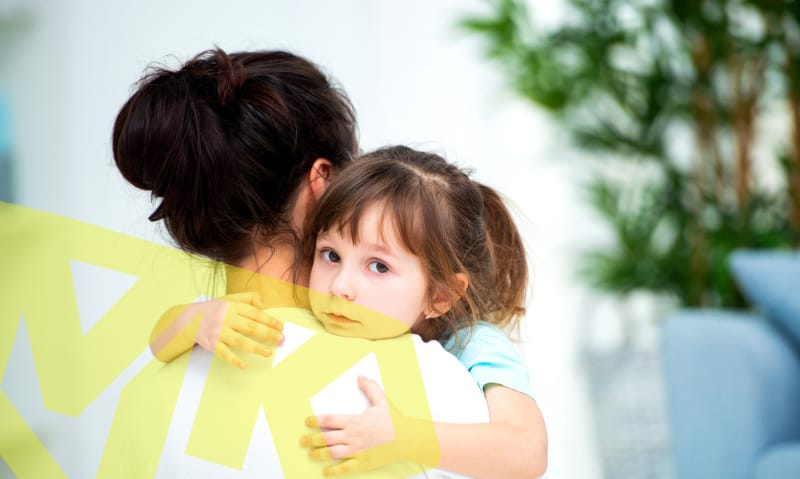A Parent’s Guide to Helping Kids Understand and Manage Their Emotions

Parents can help their children handle their emotions in a healthy way.
We all experience emotions, and each of us handles different emotions in different ways. As a parent, it can be hard to figure out what one child is feeling when compared with another child. This is because we all experience things differently. But if you start early, you can help your children express themselves emotionally.
What is emotional intelligence?
Emotional intelligence, often referred to as EQ or EI, is defined by the Cambridge Dictionary as “the ability to understand and control your own feelings, and to understand the feelings of others and react to them in a suitable way.” This is a useful skill for everyone to learn, and having children in tune with how they feel and how others feel at an early age can make them more successful when managing their emotions and relationships throughout the years.
What are the benefits of emotional intelligence?
Emotional intelligence has many benefits, and the earlier a child understands their emotions, the better. Many studies have concluded that people who have high EQ actually have a higher IQ, often scoring better on standardized tests and having higher overall grades in school. One study that was posted in the American Journal of Public Health suggests that children with a high EQ by kindergarten were able to share, cooperate, and follow directions better than their counterparts and were more likely to obtain college degrees later in life.
Having a high EQ can also help children—and even adults—build stronger relationships and friendships. This is because a high EQ can help people manage conflict and maintain deeper and more personal connections with other people.
Researchers also suggest that people with high EQs tend to be less prone to experiencing depression and other mental illnesses in their lifetimes.
Why is having a high EQ beneficial?
If a child is in tune with how they feel and are able to vocalize their feelings, adults—and even other children—are better able to understand the child’s feelings and can better help the child. For instance, if a child is sad and can vocalize why they are sad, not only can the child try self-soothing techniques, but anyone else can also help the child work through their sadness appropriately.
Learn to label emotions.
An important component of having a high EQ is learning to put a label on how you are feeling. The best way for parents to help build their child’s EQ is by talking about emotions.
If a child is upset because they weren’t chosen first to play a game, a parent can ask the child why they are sad, and come up with a solution for how they are feeling.
The most important thing for a parent is to show their child empathy. Address the emotions—your child has a right to feel what they are feeling. Just because you, as a parent, don’t react the way your child does to an emotion doesn’t mean you can’t validate their feelings. Everyone reacts differently to different situations, and it is important to understand this when teaching your child about emotional intelligence.
Sometimes, using pictures of faces with various emotional responses can help children put labels on how they are feeling.
Ask the child why they are sad, and what can be done to change it. Don’t forget to work on labeling good emotions too, like joy and excitement. Having an understanding of all emotions is important to having a well rounded child.
Learn to express emotions.
Once a child understands what emotions are and how to put labels on them, it’s important to teach children how to express these emotions in a healthy way. If a child is upset, throwing a temper tantrum or a toy doesn’t solve anything. Instead, teach children to express that they are feeling upset with their words. Ask them to describe how they are feeling, and then work on a solution for solving the situation that made them upset.
Let us help your child express their joy with a lovely smile.
At Must Love Children Pediatric Dentistry, we can help your child express their smile and happiness by checking in on their oral health at least twice a year. We specialize in children’s dentistry and absolutely LOVE our patients. If you haven’t been to our office in a while, make an appointment today—we’d love to see your smile!